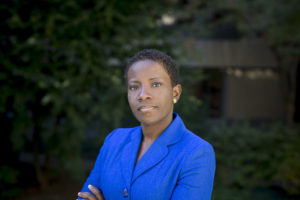 Dehlia Umunna is a Clinical Professor of Law at Harvard Law School (HLS), and the Director of the law school’s Criminal Justice Institute (CJI), where she supervises third-year law students in their representation of adult and juvenile clients in criminal and juvenile proceedings in Massachusetts Courts, including the Supreme Judicial Court. Her teaching interest and research focus on Criminal Law, Criminal Defense and Theory, Mass Incarceration, and Race Issues. She serves as a Faculty Adviser to some student organizations. Professor Umunna coaches the HLS National Criminal Justice Trial Advocacy and the HLS Black Law Student Association Trial Teams, and has led them to numerous regional and national awards. In addition to her work at HLS, Professor Umunna serves as a faculty member for Gideon’s Promise (formerly the Southern Public Defender’s Training Center), and is a frequent presenter at Public Defender Training Conferences and Social Justice Reform Panels around the country. She was recently appointed by the Massachusetts Supreme Judicial Court to the newly-established Bar Admissions Curriculum Committee to assist in crafting the Uniform Bar Exam.
Dehlia Umunna is a Clinical Professor of Law at Harvard Law School (HLS), and the Director of the law school’s Criminal Justice Institute (CJI), where she supervises third-year law students in their representation of adult and juvenile clients in criminal and juvenile proceedings in Massachusetts Courts, including the Supreme Judicial Court. Her teaching interest and research focus on Criminal Law, Criminal Defense and Theory, Mass Incarceration, and Race Issues. She serves as a Faculty Adviser to some student organizations. Professor Umunna coaches the HLS National Criminal Justice Trial Advocacy and the HLS Black Law Student Association Trial Teams, and has led them to numerous regional and national awards. In addition to her work at HLS, Professor Umunna serves as a faculty member for Gideon’s Promise (formerly the Southern Public Defender’s Training Center), and is a frequent presenter at Public Defender Training Conferences and Social Justice Reform Panels around the country. She was recently appointed by the Massachusetts Supreme Judicial Court to the newly-established Bar Admissions Curriculum Committee to assist in crafting the Uniform Bar Exam.
Prior to coming to Harvard, Professor Umunna spent several years at the Public Defender Service for the District of Columbia (PDS) as a trial attorney. At PDS, she was a felony one trial attorney, representing indigent clients in hundreds of cases from misdemeanor charges of theft, assault, and drug possession, to kidnapping, child sexual abuse, rape, and homicide. Some of her cases received nationwide media attention. She also served as faculty training attorneys under the District of Columbia Criminal Justice Act.
From 2002 to 2007, Professor Umunna was an Adjunct Professor of Law and Practitioner in Residence at American University, Washington College of Law. She was a board member of the District of Columbia Law Students in Court Clinic, and a guest lecturer for several years at the George Washington University Law School.
Among her recognitions, Professor Umunna has received Harvard Law School’s Dean’s Award for Excellence, in acknowledgment of her outstanding service to the HLS community where she has excelled as a student supervisor, staff manager, lecturer, coach, and mentor, and the Southern Public Defender Training Center Outstanding Faculty Mentor of the Year Award.
Professor Umunna is a member of the Massachusetts, Maryland, and District of Columbia Bar Associations. She holds a B.A. in Communications from California State University, a Masters in Public Administration (MC) from the Harvard Kennedy School of Government, and a JD from George Washington University Law School, where she was awarded the J.B. Shapiro Prize for Public Interest ($10,000). Her article “Rethinking the Neighborhood Watch: How Lessons from Nigerian Villages Can Creatively Empower Communities to Assist Low-Income, Single Mothers In America,” was recently published in AM. U. J. GENDER, SOC. POL’Y & L. (Volume 20, Number 4). She is the very proud mother of daughter, Ifeanyi, and son, Edozie.
 Professor Ronald S. Sullivan Jr. joined Harvard’s law faculty in July 2007. His areas of interest include criminal law, criminal procedure, legal ethics, and race theory. Prior to teaching at Harvard, Professor Sullivan served on the faculty of the Yale Law School, where, after his first year teaching, he won the law school’s award for outstanding teaching. Professor Sullivan is the faculty director emeritus of the Harvard Criminal Justice Institute. He also is a founding fellow of The Jamestown Project.
Professor Ronald S. Sullivan Jr. joined Harvard’s law faculty in July 2007. His areas of interest include criminal law, criminal procedure, legal ethics, and race theory. Prior to teaching at Harvard, Professor Sullivan served on the faculty of the Yale Law School, where, after his first year teaching, he won the law school’s award for outstanding teaching. Professor Sullivan is the faculty director emeritus of the Harvard Criminal Justice Institute. He also is a founding fellow of The Jamestown Project.
Professor Sullivan is a Phi Beta Kappa graduate of Morehouse College, and the Harvard Law School, where he served as president of the Black Law Students Association and as a general editor of the Harvard BlackLetter Law Review. After graduating Harvard, Professor Sullivan spent a year in Nairobi, Kenya as a Visiting Attorney for the Law Society of Kenya. In that capacity, he sat on a committee charged with drafting a new constitution for Kenya. He also worked with the Kenya Human Rights Commission, documenting human rights violations throughout Kenya.
Professor Sullivan returned to the United States where he was employed as a staff attorney for the Public Defender Service for the District of Columbia (PDS). He represented hundreds of clients in thousands of matters, ranging from juvenile delinquency cases to first-degree murder cases. After leaving PDS, Professor Sullivan went into private practice where he specialized in complex civil and white-collar criminal litigation. He worked with the D.C. law firms of Baach Robinson & Lewis, and Skadden Arps Slate Meagher & Flom. In 2000, Professor Sullivan returned to PDS as its General Counsel where he served until his appointment as Director in June 2002. As Director of PDS, Professor Sullivan served as its chief executive officer, employed over 200 people, and managed a federal appropriation of approximately $30 million. In that capacity, Professor Sullivan testified before the United States Senate, the United States House of Representatives, and the Council of the District of Columbia on a range of criminal law issues. Most recently, Professor Sullivan testified before the U.S. Senate Judiciary Committee on the nomination of Samuel A. Alito to the U.S. Supreme Court with respect to Judge Alito’s Fourth Amendment jurisprudence.
Professor Sullivan has provided legal commentary for CNN, FoxNews, and PBS on topics ranging from the Impeachment of President Clinton to the Kobe Bryant criminal proceedings. (Gary, IN; B.A., Morehouse College; J.D., Harvard University)
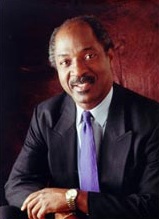 Charles Ogletree is the Harvard Law School Jesse Climenko Professor of Law and Director of the Criminal Justice Institute. In addition, Professor Ogletree serves Harvard Law School as the Executive Director of the Charles Hamilton Houston Institute for Race and Justice as well as Director of the Trial Advocacy Workshop and Saturday School Program. Professor Ogletree is a prominent legal theorist who has made an international reputation by taking a hard look at complex issues of law and by working to secure the rights guaranteed by the Constitution for everyone equally under the law. Professor Ogletree has examined these issues not only in the classroom, on the Internet and in the pages of prestigious law journals, but also in the everyday world of the public defender in the courtroom and in public television forums where these issues can be dramatically revealed. Armed with an arsenal of facts, Charles Ogletree presents and discusses the challenges that face our justice system and its attempt to deliver equal treatment to all our citizens. He furthers dialogue by insisting that the justice system protect rights guaranteed to those citizens by law.
Charles Ogletree is the Harvard Law School Jesse Climenko Professor of Law and Director of the Criminal Justice Institute. In addition, Professor Ogletree serves Harvard Law School as the Executive Director of the Charles Hamilton Houston Institute for Race and Justice as well as Director of the Trial Advocacy Workshop and Saturday School Program. Professor Ogletree is a prominent legal theorist who has made an international reputation by taking a hard look at complex issues of law and by working to secure the rights guaranteed by the Constitution for everyone equally under the law. Professor Ogletree has examined these issues not only in the classroom, on the Internet and in the pages of prestigious law journals, but also in the everyday world of the public defender in the courtroom and in public television forums where these issues can be dramatically revealed. Armed with an arsenal of facts, Charles Ogletree presents and discusses the challenges that face our justice system and its attempt to deliver equal treatment to all our citizens. He furthers dialogue by insisting that the justice system protect rights guaranteed to those citizens by law.
In 1998, Professor Ogletree was awarded the Jesse Climenko Professor of Law chair at Harvard Law School. He holds honorary doctorates of law from North Carolina Central University, New England School of Law, Tougaloo College, Amherst College, Wilberforce University, and the University of Miami School of Law.
Professor Ogletree earned an M.A. and B.A. (with distinction) in Political Science from Stanford University, where he was Phi Beta Kappa. He also holds a J.D. from Harvard Law School where he served as Special Projects Editor of the Harvard Civil Rights – Civil Liberties Law Review .
Charles Ogletree began his illustrious career as a staff attorney in the District of Columbia Public Defender Service. He quickly rose through the ranks serving as Training Director, Trial Chief, and Deputy Director of the Service before entering private practice in 1985 in the law firm of Jessamy, Fort & Ogletree. Professor Ogletree is formerly “of Counsel” to the Washington, D.C. firm of Jordan, Keys & Jessamy.
Professor Ogletree is the author of All Deliberate Speed: Reflections on the First Half-Century of Brown v. Board of Education , published by W.W. Norton & Company and released in April of 2004 ( www.alldeliberatespeed.com). He is the co-author of the award-winning book, Beyond the Rodney King Story: An Investigation of Police Conduct in Minority Communities , and he frequently contributes to the Harvard Law Review , among other publications. He has written chapters in several books, including If You Buy the Hat, He Will Come , in Faith of Our Fathers: African American Men Reflect on Fatherhood and The Tireless Warrior for Racial Justice , which appears in Reason & Passion: Justice Brennan’s Enduring Influence. Privileges and Immunities for Basketball Stars and Other Sport Heroes? appears in Basketball Jones , published in 2000. In addition, Professor Ogletree’s commentaries on a broad range of timely and important issues have appeared in the editorial pages of the New York Times , the Washington Post , the Los Angeles Times , and the Boston Globe , among other national newspapers. His commentary on how to make Black America better was published in the 2001 compilation, Lift Every Voice and Sing . Most recently, Professor Ogletree has contributed a chapter entitled The Rehnquist Revolution in Criminal Procedure , which appears in The Rehnquist Court: Judicial Activism on the Right , published in 2002.
In 1991, Professor Ogletree served as Legal Counsel to Professor Anita Hill during the Senate Confirmation hearings for Justice Clarence Thomas. His reflections on those experiences are contained in The People vs. Anita Hill: The Case for Client-Centered Advocacy , a chapter of the book, Race, Gender and Power in America . He was profiled in an article in The American Lawyer entitled, Tree Time . More recently, Professor Ogletree was prominently featured in award-winning author Sara Lawrence-Lightfoot’s compelling book, I’ve Known Rivers , and in a Boston Globe magazine article entitled, Faith in the System .
In 2003, he was selected by Savoy Magazine as one of the 100 Most Influential Blacks in America and by Black Enterprise Magazine, along with Thurgood Marshall, A. Leon Higginbotham, Jr., and Constance Baker Motley, as one of the legal legends among America’s top black lawyers. In 2002, he received the National Bar Association’s prestigious Equal Justice Award. In 2001, he joined a list of distinguished jurists, including former Supreme Court Justices Thurgood Marshall and William Brennan, and civil rights lawyers Elaine Jones and Oliver Hill, when he received the prestigious Charles Hamilton Houston Medallion of Merit from the Washington Bar Association. He also held the Wayne Morse Chair of Law and Politics at the University of Oregon Law School and was a Scholar in Residence at Stanford University. In 2000, Professor Ogletree was selected by the National Law Journal as one of the 100 Most Influential Lawyers in America . He has received numerous awards, including the National Conference on Black LawyersPeople’s Lawyer of the Year Award , the Man of Vision Awardfrom the Museum of Afro-American History in Boston, the 1993Albert Sacks-Paul A. Freund Award for Teaching Excellence at Harvard Law School, and in 1995, The Ellis Island Medal of Honorand The Ruffin-Fenwick Trailblazer Award named in honor of the first African-American man and woman to graduate from Harvard Law School. In 1996, the National Bar Association honored him with its Presidential Award for The Renaissance Man of the Legal Profession . He was also awarded the International House of Blues Foundation Martin Luther King, Jr. Drum Major Award, The Justice Louis Brandeis Medal for Public Service, and the 21st Century Achievement Award from the Urban League of Eastern Massachusetts.
In addition to his strong academic focus, Charles Ogletree’s national media experience and exposure is considerable in its scope. In 2001 and 2002, Professor Ogletree moderated the nationally-televised forums, State of the Black Union and Where Do We Go From Here: Chaos or Community , produced by Tavis Smiley Productions. Professor Ogletree also served as the moderator of four of producer Fred Friendly’s seminal ten-part series, Ethics in America , which aired on PBS. Since 1990, he has moderated dozens of similar programs, including Hard Drugs, Hard Choices, Liberty & Limits: Whose Law, Whose Order? and Credibility in the Newsroom . Professor Ogletree has also appeared as a guest commentator onNightline, This Week with David Brinkley, McNeil-Lehrer News Hour, Crossfire, The Today Show, Good Morning America, Larry King Live, Cochran & Company, Burden of Proof , and Meet the Press as well as other national and local television and radio programs. He served as NBC legal commentator on the O.J. Simpson case.
Professor Ogletree also serves as the Co-Chair of the Reparations Coordinating Committee, a group of lawyers and other experts researching a lawsuit based upon a claim of reparations for descendants of African slaves, along with Randall Robinson, co-author of The Debt: What America Owes to Blacks .
Professor Ogletree has a long record of commitment and service to public schools and higher education. He completed ten years of service to his alma mater, as a member of the Stanford University Board of Trustees, and for five years served as the national Chairman of the Stanford Fund, the University’s principal fund raising organization. Professor Ogletree’s development activities have also raised substantial funds for Harvard Law and the UDC, where he currently serves as the Chairman of the Board of Trustees of the University of the District of Columbia, a land grant and historically black college and university. He continues to serve as the Chairman of the Board of the B.E.L.L. Foundation, which is committed to educating minority children in after school programs in Boston, New York, and Washington, D.C. In addition, Professor Ogletree served as one of the founding members and trustee of the Benjamin Banneker Charter School in Cambridge, a school that provides educational opportunities in math, science and technology to minority children in a public school setting. Professor Ogletree attended public schools in his hometown of Merced, California, and has set up a scholarship fund there that now annually provides support for needy students who want to pursue higher education. He has also provided scholarship support for students at Harvard Law School, Stanford University, and the University of the District of Columbia.
Professor Ogletree has been married to his fellow Stanford graduate, Pamela Barnes, since 1975. They are the proud parents of two children, Charles Ogletree III and Rashida Ogletree. The Ogletree’s live in Cambridge and are members of St. Paul African Methodist Episcopal Church.
Prior to joining the C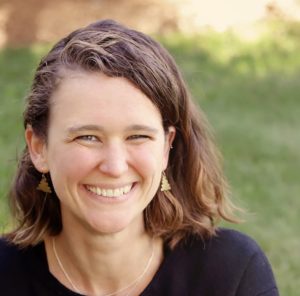 riminal Justice Institute as a Clinical Instructor, Eliza was a public defender with the Committee for Counsel Services (CPCS), Youth Advocacy Division (YAD) for five years. She represented youth aged 12-18 in delinquency and youthful offender proceedings and was also the intern coordinator and supervisor for the Malden YAD office. Before joining YAD, Eliza represented adults facing misdemeanors and felonies in Quincy District Court. Eliza is a graduate of Northeastern University School of Law (2014).
riminal Justice Institute as a Clinical Instructor, Eliza was a public defender with the Committee for Counsel Services (CPCS), Youth Advocacy Division (YAD) for five years. She represented youth aged 12-18 in delinquency and youthful offender proceedings and was also the intern coordinator and supervisor for the Malden YAD office. Before joining YAD, Eliza represented adults facing misdemeanors and felonies in Quincy District Court. Eliza is a graduate of Northeastern University School of Law (2014).
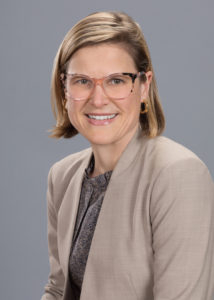
Lia is the Managing Attorney at CJI, and a Senior Clinical Instructor. Prior to joining CJI in 2014, Lia served as a superior court trial attorney with the Roxbury Defenders Unit at the Committee for Public Counsel Services (CPCS), where she was the lead attorney in serious felony cases, and represented clients in all stages of criminal prosecution from arraignment through post-dispositional advocacy. Before she became a public defender, she was an Equal Justice Works Fellow at the Children’s Law Center of Massachusetts, where she developed efforts to challenge the sentencing of children in Massachusetts to life without parole. Lia was a Litigation Associate at Cleary Gottlieb Steen & Hamilton, and clerked for the Honorable Kenneth M. Karas in the Southern District of New York.
Lia graduated from Northwestern School of Law in 2004 (cum laude). She received her Bachelor of Arts in Women’s Studies, with a minor in African and African American Studies at Dartmouth College.
Coming Soon
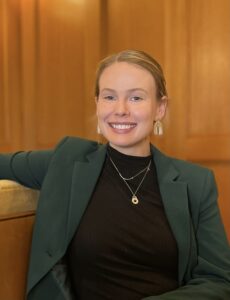
Sarah Waldron is a Licensed Certified Social Worker (LCSW). Prior to joining the Criminal Justice Institute in 2024, Sarah worked as a Social Services Advocate at the Committee for Public Counsel Service (CPCS) where she worked collaboratively with attorneys to provide support and resources to people charged with crimes in Middlesex and Essex counties. She has also worked as a court-appointed mitigation specialist on cases in the Eastern and Southern Districts of New York. During her masters program she received training at the Bronx Defenders and on an Assertive Community Treatment team.
Sarah obtained her bachelors in psychology from New York University in 2013, and her Masters in Social work from Columbia University in 2020.
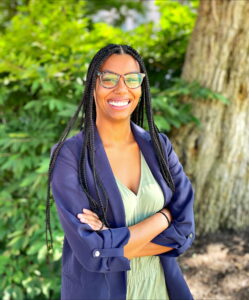 Alexis Waller is a Licensed Independent Clinical Social Worker (LICSW). Prior to joining CJI in 2021, Alexis worked in Adult Community Clinical Services (ACCS) supporting Department of Mental Health (DMH) clients to address complex psychiatric, medical, legal, housing and substance use concerns. Alexis also has experience working in acute inpatient psychiatric settings and in outpatient psychiatric settings, where she conducted individual and couple’s psychotherapy with adults.
Alexis Waller is a Licensed Independent Clinical Social Worker (LICSW). Prior to joining CJI in 2021, Alexis worked in Adult Community Clinical Services (ACCS) supporting Department of Mental Health (DMH) clients to address complex psychiatric, medical, legal, housing and substance use concerns. Alexis also has experience working in acute inpatient psychiatric settings and in outpatient psychiatric settings, where she conducted individual and couple’s psychotherapy with adults.
At CJI, Alexis enhances the defense team through providing clinical mitigation support. She conducts clinical assessments, referrals to treatment and brief clinical interventions to support clients in their goals and legal case. In addition, she supervises macro and clinical Master of Social Work interns as well as provides consultation to the student attorneys to support their practice and knowledge of the systems that their clients are engaged with.
Alexis graduated with her Bachelor of Social Work from Simmons University and a Master of Social Work from Boston University with a Behavioral Health Specialization.
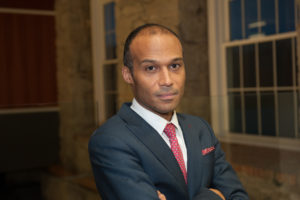 Prior to joining the Criminal Justice Institute as a Clinical Instructor, Christian Williams was a public defender with the Committee for Public Counsel Services (2010-2020). Chris defended people facing serious felonies in Bristol County, Norfolk County, and people wrongfully convicted in the Hinton drug lab scandal. Before joining CPCS, Chris was an attorney with the Virginia Capital Representation Resource Center defending people sentenced to death in state and federal habeas proceedings. He is a board member of the Massachusetts Association of Criminal Defense Lawyers. Prior to law school, Chris was a software developer and instructor for fourteen years focused on relational databases and internet application servers. He is a graduate of Cornell Law School (J.D., 2009); the University of Rhode Island (B.A., 1991); and the National Criminal Defense College – Trial Practice Institute (Certificate, 2015).
Prior to joining the Criminal Justice Institute as a Clinical Instructor, Christian Williams was a public defender with the Committee for Public Counsel Services (2010-2020). Chris defended people facing serious felonies in Bristol County, Norfolk County, and people wrongfully convicted in the Hinton drug lab scandal. Before joining CPCS, Chris was an attorney with the Virginia Capital Representation Resource Center defending people sentenced to death in state and federal habeas proceedings. He is a board member of the Massachusetts Association of Criminal Defense Lawyers. Prior to law school, Chris was a software developer and instructor for fourteen years focused on relational databases and internet application servers. He is a graduate of Cornell Law School (J.D., 2009); the University of Rhode Island (B.A., 1991); and the National Criminal Defense College – Trial Practice Institute (Certificate, 2015).
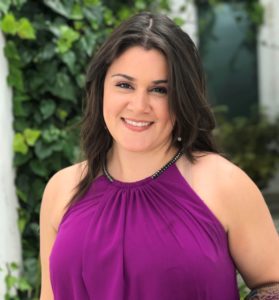
Carol Flores joined the Criminal Justice Institute in 2016 as the CJI Administrative Coordinator, Trial Advocacy Workshop Coordinator, and Faculty Assistant to Clinical Professor of Law Dehlia Umunna. Prior to joining CJI, she worked at Suffolk University’s Sawyer Business School’s Dean’s office. She is currently pursuing a degree at the Harvard Extension School and is the proud mother of Andrew and Elizabeth.
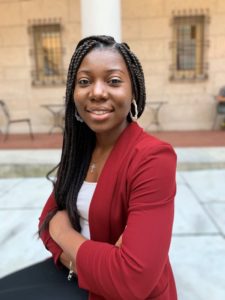 Kekely Dansouh joined the Criminal Justice Institute in 2020 and serves as the Administrative Coordinator, Trial Advocacy Workshop Coordinator, and Faculty Assistant to Deputy Director, Professor Ronald S. Sullivan Jr. Prior to CJI, Kekely worked with Faculty Support Services, assisting visiting and full-time faculty. Kekely enjoys cooking, reading, and hopes to travel around the world one day.
Kekely Dansouh joined the Criminal Justice Institute in 2020 and serves as the Administrative Coordinator, Trial Advocacy Workshop Coordinator, and Faculty Assistant to Deputy Director, Professor Ronald S. Sullivan Jr. Prior to CJI, Kekely worked with Faculty Support Services, assisting visiting and full-time faculty. Kekely enjoys cooking, reading, and hopes to travel around the world one day.